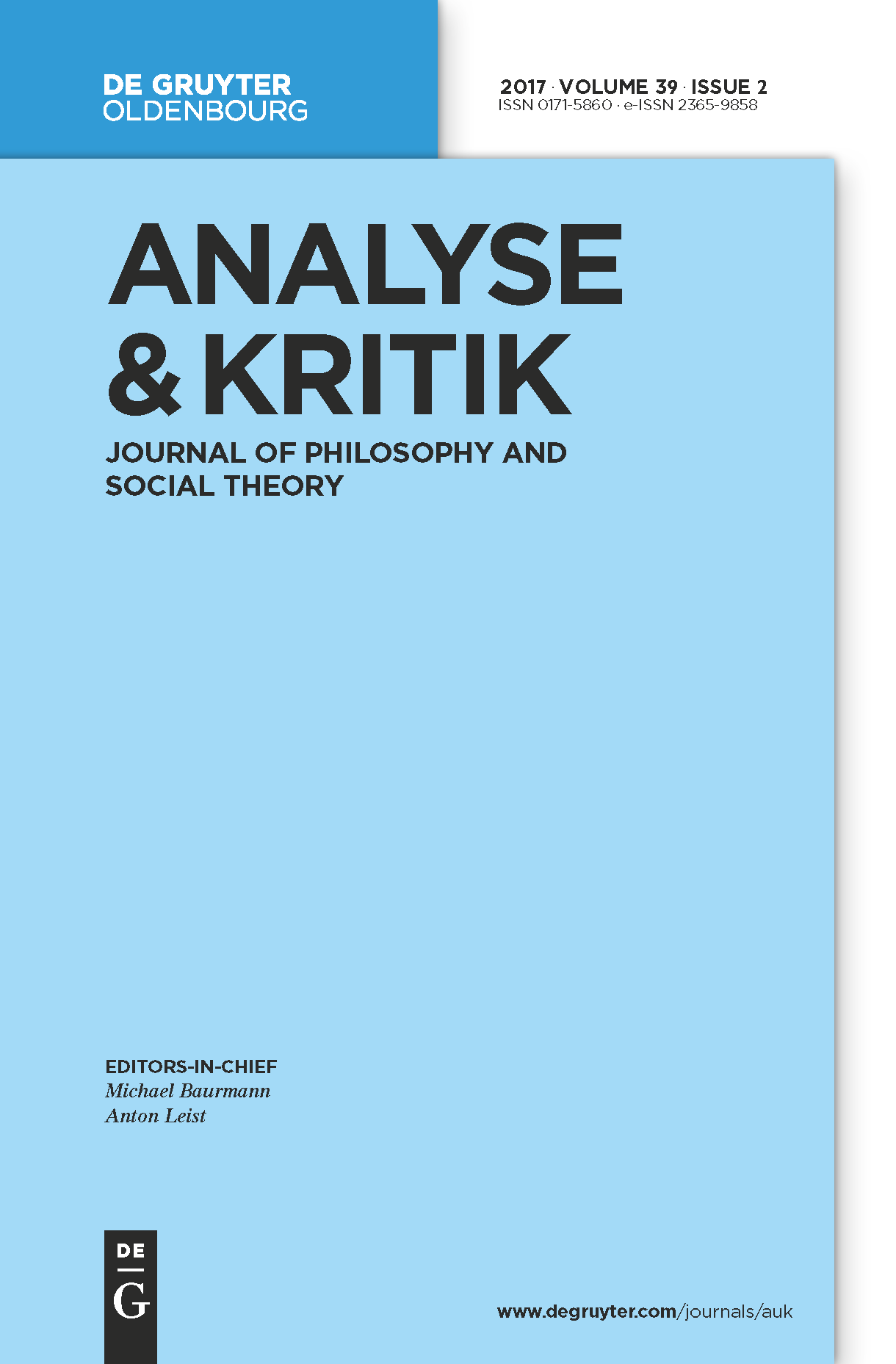Suchergebnisse
"George Crowder"
Titel: The Philosophy of History: A Value-pluralist Response
Autor: George Crowder
Seite: 223-239
Abstract: Vittorio Hösle’s evaluation of the Soviet Revolution on the ground of the philosophy of history can be usefully examined from the value-pluralist perspective of Isaiah Berlin. Although Berlin would agree with most of Hösle’s judgements on the Revolution, he would do so for very different reasons. Most importantly, Berlin would not accept the teleology that lies at the heart of the philosophy of history. For Berlin, the notion of a human telos to be realized at the end of history is a species of moral monism, and so falsified, indeed rendered incoherent, by the deeply pluralist reality of human values. However, Berlin’s pluralism also seems to present a problem for the justification of liberalism, and I consider a range of responses to this difficulty.
Titel: Value Pluralism and Philosophy of History
Autor: Vittorio Hösle
Seite: 185-189
Inmy reply to George Crowder’s criticism ofmy essay on the Soviet Revolution in the last issue of Analyse & Kritik, I discuss two problems: the nature of a reasonable value pluralism and the relation between ethics and philosophy of history. Concerning the first, I insist on the necessity of an objective rank ordering of values; with regard to the second, I side with Kant, who builds philosophy of history on ethics, and reject the Marxist idea that ethics is itself grounded in philosophy of history.
Titel: Pluralism, Kant and Progress
Autor: George Crowder
Seite: 191-197
Vittorio Hösle’s reply helpfully clarifies his ethical position but raises three questions from a value-pluralist point of view. First, is the Kantian starting point he proposes a monist position that undercuts the value pluralism to which he says he is committed? Second, in what sense does he accept the central pluralist idea of the incommensurability of values? In particular, what kind of constraint does he believe this places on the rank ordering of values? The formulations he offers are ambiguous between allowing contextual ordering, which is widely endorsed by pluralists, and permitting a comprehensive order that applies in all cases, which most pluralists would reject. Third, Hösle’s commitment to the cause of progress is admirable, but how can this be squared with pluralism? Here, I return to the broad approaches to the problem of pluralist ranking that I identified in my original reply to Hösle.
Titel: Value Pluralism: Crucial Complexities
Autor: George Crowder
Seite: 321-336
Discussing the crucifix case, Beata Polanowska-Sygulska concludes that the decision on appeal fits with Berlinian value pluralism, while the initial judgement was ethically monist. Her assumption is that pluralism favours cultural diversity against uniform law. This assumption is too simple and needs to be qualified by several considerations. First, we should be clear that, under pluralism, a moral question may have ‘one right answer’ if this is contextual. Second, so far as pluralism connects with cultural diversity, this has multiple dimensions, applying not just among societies but within them as well. Third, pluralists ought to be concerned primarily with promoting a diversity of values rather than cultures. When these matters are properly taken into account, it can be seen that a uniform lawmay be more pluralist than a multiplicity of local laws, depending on
the circumstances.
Titel: Diversity and Decency
Autor: Beata Polanowska-Sygulska
Seite: 241-25
George Crowder’s article makes an interesting contribution to the literature on value pluralism. Yet, as a commentary onmy essay (Polanowska-Sygulska,2019c) it is entirely misconceived. Crowder’s reading of my text is inadequate, in terms of both the legal and the philosophical aspects of my argument. Having ascribed to me the belief that pluralism always favors cultural diversity against legal uniformity (a belief which I do not hold), he argues that a single uniform law may engender more value diversity than a multiplicity of local legal systems. This may ndeed be so, but it is notmy concern. What Isaiah Berlin aimed at more than anything else was to bring about a decent societ y, which at times requires the pursuit of other values to be limited. I share his approach and therefore argue that, for the sake of decency, both value diversity and cultural diversity may sometimes need to be restricted.

Evaluating Societies Morally?
2017 (39) Heft 2
Editorial
There is hardly a greater distance between our everyday attitudes and scientific caution than in the case of evaluative statements concerning states and their representatives. Even though it is rare that whole cultures are called ‘evil’, judging state representatives in moral terms, often negatively, is wide-spread, and not only among the politically involved. In contrast, classical moral ‘theories’ and their advocates in the human sciences are reluctant to apply moral judgements to item...